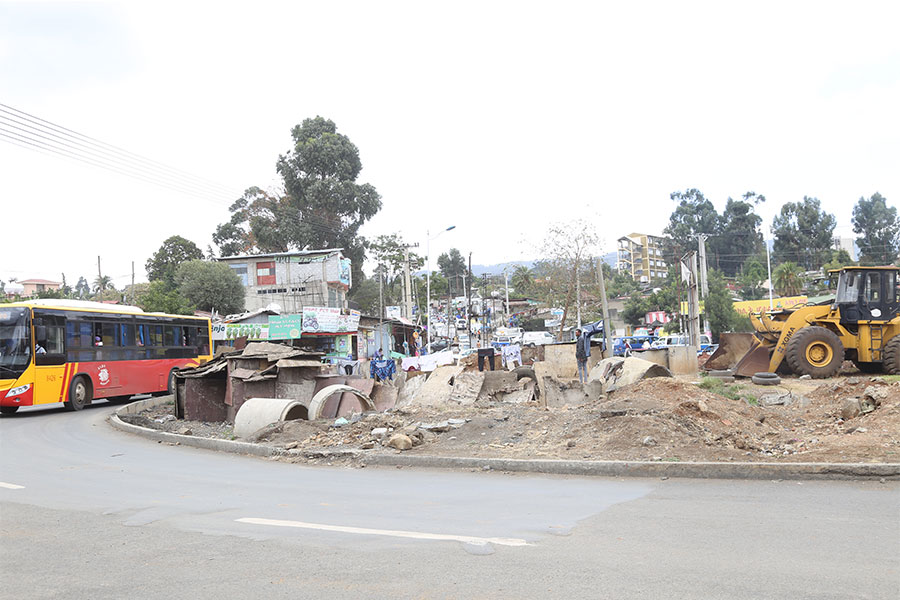
Verbatim | Oct 28,2023
Sep 6 , 2020
By Eden Sahle
Unfortunately, there are no formal standards in Ethiopia on how to raise children in a proper environment within the home. Everyone relies on tradition, and the business of the family is strictly kept separate from that of the nation and society.
This reality is dangerous and could lead to children growing up in hostile and unsuitable conditions that lay a harmful foundation for them. It negatively affects their socio-cultural norms and causes them trauma.
At worst, excusing parents from legal and social responsibility simply because it is their children that they are dealing with could lead to problems. At worst, this may mean children getting abused physically, sexually and emotionally. At best, they will grow up to either be conformists or completely unable to affirm the norms and values of the society they live in, without a bone in their body that questions authority or the status quo, however bad it may be.
Governments and civil societies have, for the most part, learned to accept this, view them as consequences of poverty and generally hope they are addressed as standards of living improve.
Let us consider the worst-case scenario: the abuse of children, for which there is little remedy, given that the victims are often in poor financial circumstances and weakly defended by the law. In most cases, children become much like their parents. Those that have been abused during childhood, either physically or mentally, have a higher chance of abusing their own offspring.
Emotional and psychological abuse and neglect deny children the emotional and behavioural skills that allow them to succeed professionally and socially. Children who are maltreated are more likely to grow up to use drugs or alcohol, run away, refuse to abide by the law and hurt themselves and those closest to them.
There is little scientific evidence to indicate that felons are born bad. It is environmental and economic factors that lead them down such a path. A few may find opportunities and luck and make it to a better life, but the majority remain trapped.
But bad parenting is not wholly about abusing children. It is also failing to instill progressive values in them. Children grow up in households where bad habits and biased views are expressed, making it harder for them to grow up to become open-minded, sensitive and inquisitive.
Research indicates that children that grow up in loving and caring households tend to benefit greatly and grow up to become adults that feel a responsibility toward their society. Around 80pc of a child’s character is formed by age five, and 90pc of a child’s personality is formed by age seven, according to studies.
It shows how parents take the lion’s share of the responsibility for how their children turn out to be. When parents lack solid moral and ethical foundations, compassion, integrity and commitment to their children, the consequences are disastrous. It is a foundational problem that needs to be addressed at home.
Child protection policies and laws in Ethiopia ought to be effectively implemented to protect children and allow them to exercise their full rights. But these laws will not be effective in and of themselves. There is also a dire need to guide society toward a more progressive outlook in which parents are expected to instill in their children a sense of justice, accountability and concern for social inequities.
We usually tend to perceive our dysfunction as the problem of everyone but ourselves. But playing a positive part starts in our homes. Instead of neglecting and perceiving the societal disaster as a strange occurrence that is out of our hands, we need to understand that the solution is within us. An informed public makes for a populace that continually reforms and renews itself. This is not just the job of schools or government but parents as well.
PUBLISHED ON
Sep 06,2020 [ VOL
21 , NO
1062]

Verbatim | Oct 28,2023

Verbatim | Oct 11,2025

Fortune News | Aug 14,2021

Life Matters | Mar 25,2023

Radar | Mar 09,2019

Viewpoints | May 23,2021

Viewpoints | May 25,2019

View From Arada | Nov 09,2019

My Opinion | Dec 11,2020

Covid-19 | Aug 08,2020

Photo Gallery | 174590 Views | May 06,2019

Photo Gallery | 164818 Views | Apr 26,2019

Photo Gallery | 155014 Views | Oct 06,2021

My Opinion | 136695 Views | Aug 14,2021
Editorial | Oct 11,2025

Dec 22 , 2024 . By TIZITA SHEWAFERAW
Charged with transforming colossal state-owned enterprises into modern and competitiv...

Aug 18 , 2024 . By AKSAH ITALO
Although predictable Yonas Zerihun's job in the ride-hailing service is not immune to...

Jul 28 , 2024 . By TIZITA SHEWAFERAW
Unhabitual, perhaps too many, Samuel Gebreyohannes, 38, used to occasionally enjoy a couple of beers at breakfast. However, he recently swit...

Jul 13 , 2024 . By AKSAH ITALO
Investors who rely on tractors, trucks, and field vehicles for commuting, transporting commodities, and f...

Oct 11 , 2025
Ladislas Farago, a roving Associated Press (AP) correspondent, arrived in Ethiopia in...

Oct 4 , 2025
Eyob Tekalegn (PhD) had been in the Governor's chair for only weeks when, on Septembe...

Sep 27 , 2025
Four years into an experiment with “shock therapy” in education, the national moo...

Sep 20 , 2025
Getachew Reda's return to the national stage was always going to stir attention. Once...

Oct 12 , 2025
Tomato prices in Addis Abeba have surged to unprecedented levels, with retail stands charging between 85 Br and 140 Br a kilo, nearly triple...

Oct 12 , 2025 . By BEZAWIT HULUAGER
A sweeping change in the vehicle licensing system has tilted the scales in favour of electric vehicle (EV...

A simmering dispute between the legal profession and the federal government is nearing a breaking point,...

Oct 12 , 2025 . By NAHOM AYELE
A violent storm that ripped through the flower belt of Bishoftu (Debreziet), 45Km east of the capital, in...